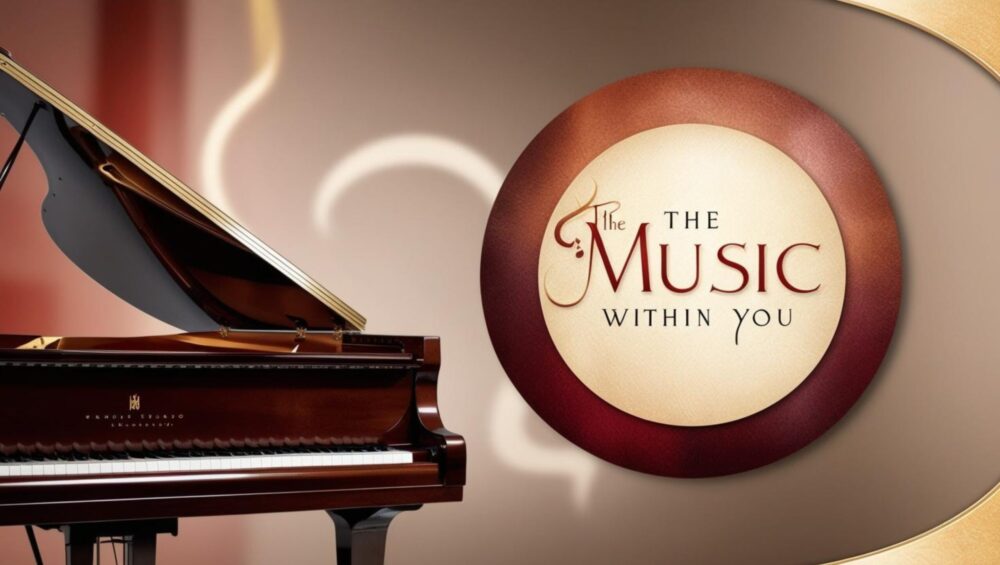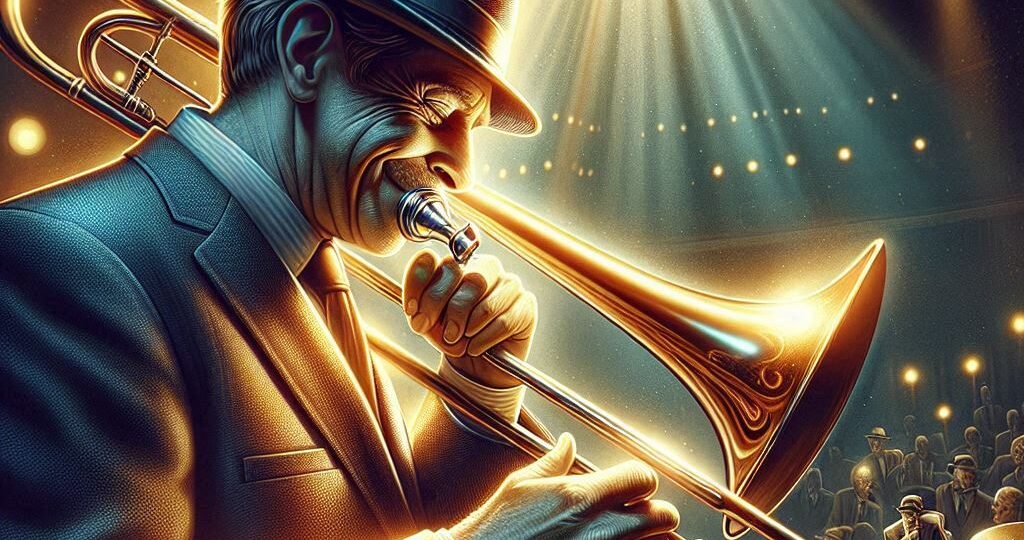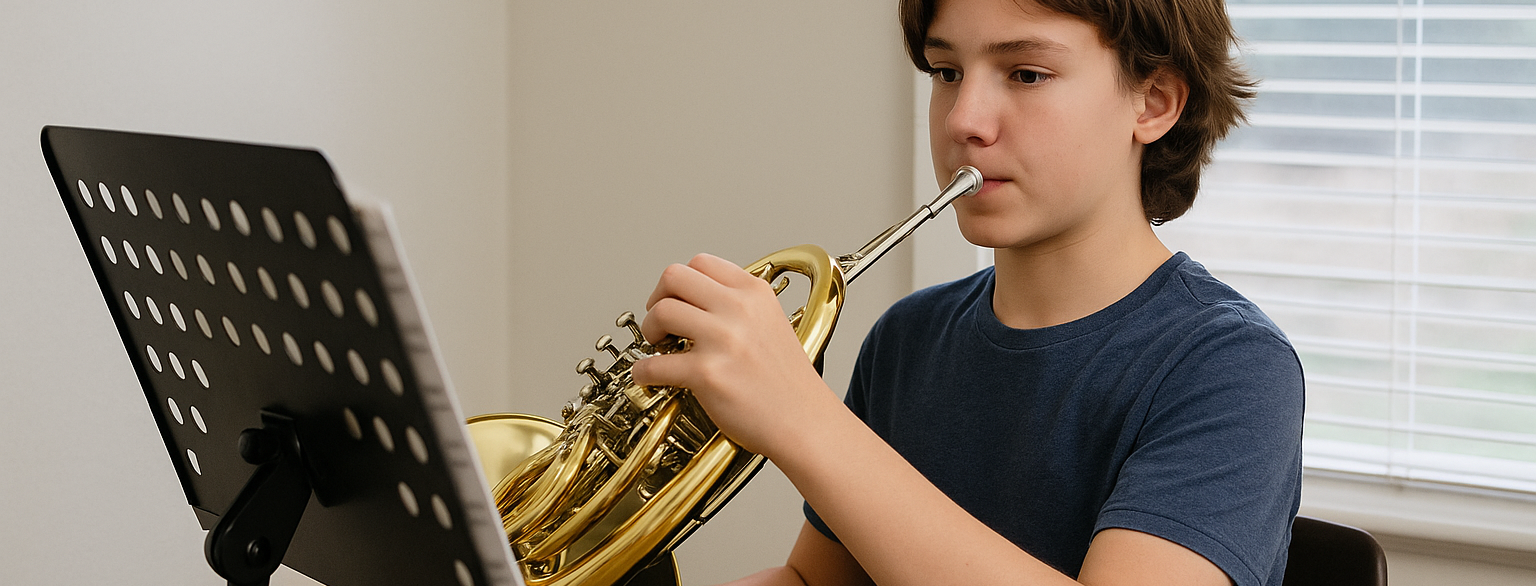The baritone horn holds a charm that just lures you in with its rich, warm tones. This instrument often gets grouped in with other brass horns, but it’s so much more than a sidekick in the brass family. It packs a sound that’s beefy yet smooth, kind of like a blend of a trombone’s soul and a euphonium’s body.
Tracing back to its roots, the baritone horn has an intriguing backstory. Born in the 19th century, it was the era of innovation that gave it breath. Through the sands of time, the baritone horn has evolved, though it has held onto its vintage allure. One look or listen, and you’ll time-travel to its heydays without leaving your seat.
Now, you might think, what puts the baritone horn in a league of its own compared to its brass cousins? Well, it’s all about that distinctive cylindrical bore. While the euphonium embraces a conical shape, the baritone horn takes a different path. This gives it a tighter, more focused sound, setting it apart from both a trombone’s brightness and a euphonium’s fullness.
Chat with seasoned musicians, and they’ll tell you the baritone horn is like an old friend – reliable, yet full of surprises. Whether hitting a mellow note or belting a powerful melody, it offers an incredible range of expression. Players often share stories about the pure joy it brings, reaffirming why many choose this underrated gem.
The Baritone Horn: Perfect for Diverse Musical Settings
Beyond its captivating sound, the baritone horn fits like a glove in just about any musical scenario you throw at it. Jump from one genre to another without skipping a beat. Jazz ensembles, classical orchestras, marching bands – it handles them all with style and grace.
In the world of bands and orchestras, the baritone horn plays a pivotal role. Acting as a bridge, it blends that gap between higher and lower voices. It’s this middle ground that enriches the harmony and depth of musical pieces. You might catch it echoing through a band’s core repertoire, making its presence felt without overshadowing its peers.
The sound of the baritone horn is significant in some of those timeless masterpieces. It’s funny how pieces like Gustav Holst’s suites go from great to legendary with those baritone notes adding their unique touch. These are the moments when the baritone steps into the spotlight, adding that extra magic sparkle to the performance.
Conductors often sing praises about the baritone horn’s ability to fit in snugly anywhere. They see it as an instrument that can adapt to any mood, any arrangement, providing texture and contrast that only it can. They love that it rounds out the brassy brilliance, adding layers that can totally transform a composition.
Feeling tempted to try it out? Chat with arrangers and composers and they’ll urge you to give the baritone horn a whirl. Its flexibility and robustness might make it your go-to for any musical journey you’re planning.
The Art of Mastering the Baritone Horn
Getting started with the baritone horn is easier than you might think and it’s rewarding too. First off, you need to pick one that matches your vibe. Some prefer newer models for their improved mechanics, while others swear by vintage pieces for their character. Make sure to test a few to see what suits your playstyle and comfort.
For newbies, developing your tone is key! Start with practicing simple long notes. This may sound basic, but it’s the gateway to improving your sound quality. Focus on steady airflow and consistent pitch, and remember – patience is your best friend here.
Technique is something to hone over time. Quick tip: play scales regularly. They might seem repetitive, but scales help in familiarizing yourself with finger positioning and intonation. Plus, they’re a great way to warm up.
Let’s not forget those common hurdles that often take a swing at beginners. Breath control, anyone? I got you. Work on diaphragmatic breathing – it’ll boost your stamina and control. Think of it like yoga breathing: steady and relaxing.
Beyond technique, make your practice sessions varied and fun. Mix in pieces you love to keep the motivation flowing. And when those tricky bits make you want to call it a day, remind yourself that every challenge conquered with this beautiful horn is a step towards mastery.
For more tips on keeping to a good practice schedule with your baritone horn, refer to the practice schedule I set up for the trumpet…the practicing will be very similar. Click Here To See My Practice Schedule
The Baritone Horn in Today’s Musical Landscape
The baritone horn is definitely having a moment right now. More and more, it’s being embraced by the younger crowd, bringing its classic tones to the fresh beats of contemporary music. Thanks to its warm, melodious sound that cuts through different genres, the baritone is making its mark in today’s vibrant musical scenes.
Many young musicians are choosing the baritone horn when looking to express a unique voice. Whether it’s being part of a traditional ensemble or jazzing things up in a modern band, they’re exploring the boundaries of what’s possible. This renewed interest has turned the horn into a kind of ambassador for brass instruments, drawing attention from unlikely places.

In the world of new music, the baritone horn is stretching its wings. Ever heard it in a pop or rock setting? If not, you’re in for a treat. Its adaptability lets it blend seamlessly, whether it’s delivering smooth backgrounds or stepping into the spotlight with a solo. It enjoys being at the heart of new creations, helping to sculpt soundscapes that captivate listeners.
Had a chat with a few budding musicians recently, and they couldn’t stop raving about the baritone horn. They see it like a canvas – full of potential for their artistic expressions. Each note they play conveys their individuality, with the instrument becoming an extension of their musical persona.
If you’re on the fence about which brass instrument to go for, the baritone horn offers something different. Imagine having a reliable yet adventurous companion on your musical journey. It’s easy to play, sounds amazing, and fits right into any group. The baritone horn is a perfect choice if you’re looking for something versatile and just plain cool.
Please note: I chose writing this article about the baritone horn as it is not nearly as common as the trumpet and much easier to tote around than the tuba. Baritone horn players are not nearly as common as trumpet and tuba players. Choosing the baritone not only makes you one of few players, it also is a very necessary part of an orchestra or concert band.





